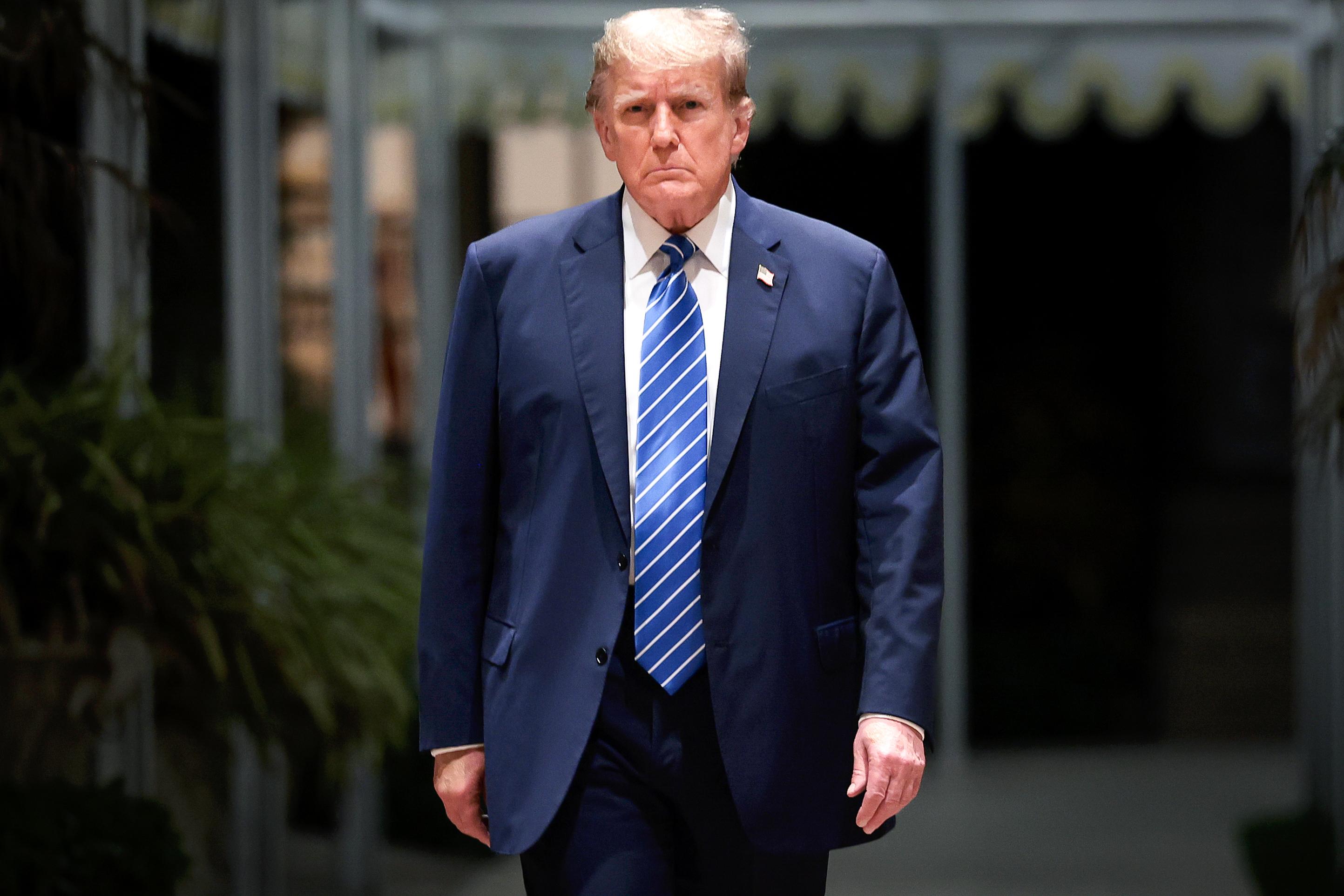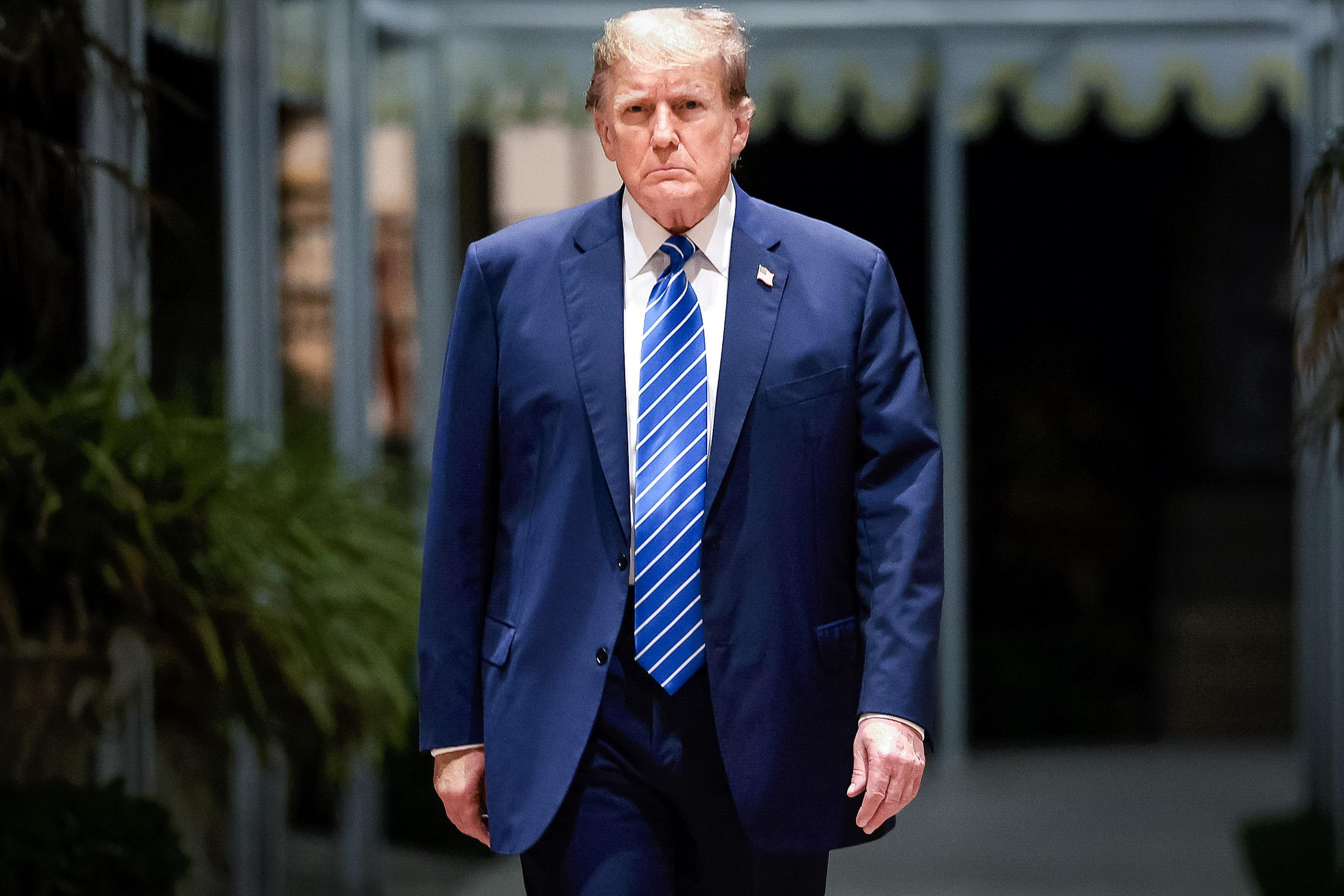|
19 mins ago

FORT PIERCE, Fla.—U.S. District Court Judge Aileen Cannon on March 14 heard arguments on two of former President Donald Trump’s several motions to dismiss a case alleging he mishandled classified documents, rejecting one motion by order roughly two hours after court adjourned.
Defense attorneys had argued for dismissal of 32 counts regarding mishandling classified documents under the Presidential Records Act (PRA) and for “unconstitutional vagueness.” However, during the hearing, Judge Cannon seemed unconvinced that those arguments weren’t better suited to the trial stage of the case. These were only two of several motions to dismiss filed by the defense.
Judge Cannon said at the end of the hearing that she would rule on these two motions “promptly.”
Prosecuting attorneys also asserted that they were not “puppets” of the Biden administration, they were a special arm of the DOJ.
The judge asked the parties whether the defense’s reading of the PRA made it so the statute superseded the Espionage Act, which makes the unauthorized possession of classified information illegal. The judge asked for caselaw, saying it’s
“difficult to see that it gets to dismissal” based on the PRA.
Prosecutors had argued that the defense’s interpretation that presidents could designate any records personal effectively “guts” the PRA, which was intended to preserve presidential records for the public.
4 hours ago
The defense said neither the DOJ nor NARA have the authority to designate records “personal” versus “presidential,” and argued they were not asking the court to decide either because President Trump had already done so. They added that if a court could review and designate records as personal or presidential, it would open up the necessity of judicial review.
They pointed to NARA’s behavior with past presidents. For example, the archive sent a letter to President George W. Bush after he left office asking if he had classified information to return, and a spokesperson said they checked and did not.
Attorneys argued that NARA had operated on an honor system, and the situation with President Trump broke precedent.
Defense attorneys argued that presidents since George Washington have taken things out of the White House, and the Presidential Records Acts allows for these records to be kept at home.
The defense’s position is that Congress, in passing the PRA, gave presidents the discretion to choose what documents to return to National Archives and Records Administration (NARA) for public recordkeeping in hopes they would send back to the archives.
The NARA is an archive tasked with recordkeeping, and has no authority to designate records “personal” or “presidential,” the defense argued. This discretion has always been the domain of the president.
After a break, the court will resume with an afternoon session on the motion to dismissed based on the Presidential Records Act.
Prosecutors had pointed to public statements President Trump made as signs that he “knew” that his retention of the documents was illegal, including comments he made about Hillary Clinton and prosecution over retaining government information on a private server.
Defense attorneys argued this did not meet the “fair notice” standard.
In the motion to dismiss for unconstitutional vagueness, the defense would have to show that it is not clear what crime President Trump is being prosecuted for. They argued that President Trump followed longstanding procedure guiding other officials on the use of classified information.
Judge Cannon pressed the prosecution to address cases concerning past presidents and vice presidents after Mr. Bratt brought up other officials being prosecuted for retaining classified information.
She asked whether history would not then inform a sitting president of what was acceptable—if past presidents had retained classified information without prosecution, what would lead the next president to believe otherwise? She asked if this would not make it a case of “arbitrary” enforcement.
Mr. Bratt could not name an example. He argued that President Clinton’s tapes did not contain classified information.
Mr. Bratt said that security clearance isn’t specifically given to a president, so there was no issue of “clearance” at any point.
He said presidents instead get “lawful access” to classified information during their time in office, but this only allows them to view the information at work, and not to take them home “and put them in his basement.”
“Certainly, certainly,” the judge said, seeming to side with the prosecutors on the idea that Mar-a-Lago was a residence and not, as the defense argued, an authorized space for classified documents as President Trump was allowed to be briefed on sensitive matters there.
Judge Cannon took issue with the timeline, asking why the investigation wasn’t opened the day after President Trump left office if that was the moment it became illegal for him to have the documents.
Mr. Bratt argued that President Trump could have realized and returned the documents later.
The judge asked if there was an official person designated to receive the return of these documents, and Mr. Bratt said that even if President Trump had given the documents to a Republican member of Congress, this case probably would have never been brought. It would not have been returned to the correct person, but he would have sought to return them, he argued.
Jay Bratt, arguing for the prosecution, argued that President Trump could not have designated the classified documents as personal records.
He pointed to a recording of President Trump saying, after he left office, referring to a stack of classified documents that he could have declassified but he hadn’t. Mr. Bratt argued this was an admission that the documents had not been designated “personal.”
Mr. Bratt argued that the Presidential Records Act allows presidents to deem personal correspondence or records as “personal,” and official documents related to the government would be, by definition, “presidential.”
In the motions, attorneys had specified that count 19 of the indictment—which charges President Trump with retaining a specific document or set of documents—should be struck because documents produced by the DOJ in discovery showed that President Trump in fact retained the security clearance needed to have the count 19 documents even after he was indicted.
Judge Cannon asked if there was an official process to transition or remove a former president’s clearance, and defense attorneys said there was none, and the removal, if it happens at all, is “inconsistent.”
She asked the defense if other officials would run afoul of what the DOJ says is illegal in President Trump’s case.
Judge Cannon pressed the defense on what their definition of “unauthorized” was.
“Judge, I don’t have one,” Mr. Blanche responded, frustrating the judge.
The judge had tried to get at who would be entitled to receive classified documents, and Mr. Blanche said there was an “extremely problematic” lack of legal definition for terms like “need to know” when it comes to classified information, as it varies case by case.
Mr. Blanche said past presidents Bill Clinton and Ronald Reagan, and President Joe Biden’s situations were “parallel” to the current case.
All had retained documents after their presidency, Mr. Blanche argued, and the Department of Justice was “complicit” and chose not to prosecute. He said it was “unspeakable” that the DOJ approved that yet are prosecuting this case.
President Clinton had shared tapes containing military information with his biographer, Mr. Blanche pointed out. The judge asked whether these tapes contained classified information, but Mr. Blanche did not know.
U.S. District Judge Aileen Cannon started with the motion to dismiss based on unconstitutional vagueness.
“These charges must be struck and dismissed,” said Todd Blanche, attorney for President Trump.
The judge questioned whether the motion was “premature” as it brings in facts outside the indictment, but Mr. Blanche said other cases have done so as well.
9 hours ago
Former President Donald Trump’s motorcade pulled up to the Florida courthouse to cheers from supporters and chants of “Trump, Trump, Trump.”
As with most Trump court appearances, fans, protestors, and press tend to turn out in droves, making for a lively event.
Today, the tailgaters had set up early, playing upbeat music and holding signs like “Florida is Trump Country.”
10 hours ago
Several of the arguments today turn on the interpretation of the word “unauthorized.”
Prosecutors argue that under the Espionage Act, President Trump’s “unauthorized” possession of classified documents constitutes a serious felony.
Defense attorneys argue that under the Presidential Records Act, President Trump certainly had the ability to designate as personal all the documents he retained, so he was in no way “unauthorized” to possess them.

FORT PIERCE, Fla.—Roughly 24 hours after a Georgia judge dropped some of the charges filed against him there, former President Donald Trump’s attorneys will argue in a Florida court that the federal classified documents case should be thrown out.
President Trump on March 14 arrived at the courthouse to appear before U.S. District Judge Aileen Cannon in Fort Pierce, Florida, as his attorneys argue two of the four motions they filed to dismiss charges against him. One motion argues that 32 charges should be dropped due to “unconstitutional vagueness,” and the other argues the entire superseding indictment should be thrown out pursuant to the Presidential Records Act (PRA).
National security files were routinely taken by past presidents, President Trump’s attorneys said in their argument for unconstitutional vagueness, “and no one suggested that their possession and retention was ‘unauthorized’ as discussed in President Trump’s motion relating to selective and vindictive prosecution.”
Original News Source Link – Epoch Times
Running For Office? Conservative Campaign Consulting – Election Day Strategies!
